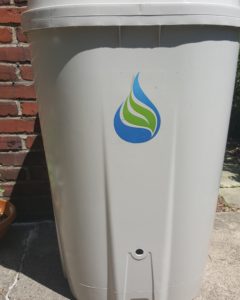 Week two of eating mostly vegetarian. Still not finding it hard at all. I don’t miss the extra meat, and Al has been fine supplementing his meals with a little more meat as he feels the need. Note that I haven’t given up my most-beloved indulgences: a glass of wine with dinner almost every night, and dessert after dinner. Our desserts aren’t usually fancy: a dish of frozen yogurt, an ice-cream sandwich, a little dark chocolate. I like to bake, though, and I will bake us something indulgent every week or two. Last week I made tarte tatin for bunco and there was a little left over. The week before I made a cherry pie. Here are the past week’s menus: Vegetarian Experiment Week Two. As always, I am glad to provide recipes for starred dishes.
Week two of eating mostly vegetarian. Still not finding it hard at all. I don’t miss the extra meat, and Al has been fine supplementing his meals with a little more meat as he feels the need. Note that I haven’t given up my most-beloved indulgences: a glass of wine with dinner almost every night, and dessert after dinner. Our desserts aren’t usually fancy: a dish of frozen yogurt, an ice-cream sandwich, a little dark chocolate. I like to bake, though, and I will bake us something indulgent every week or two. Last week I made tarte tatin for bunco and there was a little left over. The week before I made a cherry pie. Here are the past week’s menus: Vegetarian Experiment Week Two. As always, I am glad to provide recipes for starred dishes.
Monthly Archives: July 2017
Be the Change #29 – Change your diet (week one)
 I found a quick calculator that helped me to estimate my household’s carbon footprint. Ours is about 12 tons per year. Want to know yours? Check out this LINK
I found a quick calculator that helped me to estimate my household’s carbon footprint. Ours is about 12 tons per year. Want to know yours? Check out this LINK
Twelve tons seemed like a lot to me. It takes about 63 trees to offset that much. In the fall, we have so many leaves to rake that it FEELS like we have 63 trees on our little suburban lot. But we don’t. So, I researched the top ways to reduce your footprint…
1. Cut down on air travel. One round-trip flight between New York and San Francisco creates a warming effect equivalent to 2-3 tons of CO2 per person.
2. Walk or ride public transportation as much as you can. Even if you drive a small car, and only drive 500 miles per month, your car is spewing about 1.7 tons of CO2 annually.
3. Eat a vegetarian diet.
4. Have fewer children.
Too late for that last one!
I admit I love to travel and will not be reducing my carbon footprint that way any time soon. I already drive a fuel-efficient car and take public transportation to work. But, I’m really worried about climate change and, in the spirit of my ‘be the change’ theme, rather than complaining about Trump pulling out of the Paris accord, I decided to try eating less meat.
My daughter and son-in-law have been vegetarians for years, so I know first-hand how do-able it is. And I’ve never been someone who has to eat at lot of meat at every meal. But, I do enjoy meat, so I just didn’t think I could go vegetarian, much less vegan. I decided to try reducing my meat consumption by about 70%. I’ve been on this flexitarian diet for a week now, and I’m not finding it hard at all. And I lost a pound! But, better yet, I’m reducing our carbon footprint by almost a ton per year. I’d encourage almost anyone to try this. I’ll publish my menus weekly for the next several weeks, and can provide recipes for starred items on request.
Here’s a link to this week’s menus:
Vegetarian Experiment Week One
Did Augustine Invent Sex?
 Well, an article in the June 19 issue of The New Yorker says he did.
Well, an article in the June 19 issue of The New Yorker says he did.
I highly recommend the article as very interesting reading about Saint Augustine’s early life and how his thinking on the topic of sexuality evolved and became the foundation of the Christian position on sex. In a nutshell, the author relates Augustine’s first adolescent experience with an involuntary erection to his later thinking on the topic of Original Sin. Because we are unable to control our lust, we are fundamentally flawed and in need of salvation.
I have a few quibbles with the piece. First, the description of Augustine’s education fails to mention a key figure: his patron Romanianus (renamed Urbanus in The Saint’s Mistress because some of my early readers found the name Romanianus confusing).
Second, their son’s budding adolescent sexuality was far from the only point of contention between Augustine’s parents, Monica and Patricius.
Third, the author states that Augustine “didn’t even bother to mention” the name of his mistress in the Confessions, implying that she was of little importance to him. In fact, Augustine describes in the Confessions how very deeply he loved the mistress that I named Leona in The Saint’s Mistress. He describes his anguish in being torn from her. They were lovers for 14 years, and she was the mother of his only child. I think it is indisputable that he loved her. I interpret his reticence to name her as a way of protecting her privacy.
Fourth, as I portray in my book, Augustine contemplated chastity long before his conversion to Christianity. In the period of the late Roman empire, several cults arose that required chastity in their adherents, probably in reaction to the self-indulgence and debauchery of the era. The Manichean elect, for example, were to be chaste.
Overall, though, I really liked this article. It described Augustine’s thought process on the topic of sexuality in a way that was clear, correct and entertaining. I liked how the author delved into the future saint’s past to help explain his keen interest in the topic. Saint Augustine certainly knew lust and failed again and again at self-mastery, just as we all do. He was brilliant. And now he is holy. But, he was deeply, fully passionately human during his life – a saint any of us can identify with.
Be the Change #28 – Protect Water Resources
 Al and I got a rain barrel this week. For $85, we got the barrel, the spigot, instructions and a very informative lecture – not just on how to use the rain barrel, but about the threats to safe drinking water in Pennsylvania and what we all can do to protect our water resources.
Al and I got a rain barrel this week. For $85, we got the barrel, the spigot, instructions and a very informative lecture – not just on how to use the rain barrel, but about the threats to safe drinking water in Pennsylvania and what we all can do to protect our water resources.
The most important thing we learned is why our rain barrel is important. We thought it was just a way of saving money during summer dry spells when we have a lawn and garden to water. We hope it will be that, but it has the even more vital function of reducing the load on our sewer systems.
Water that runs off your roof into a downspout can contribute to storm sewer overload. Storm sewer overload results in storm water being diverted into a Combined Sewer System, leading to Combined Sewer Overflow: the discharge into our groundwater, rivers and streams of storm runoff mixed with untreated sewage. Yuck!
Our rain barrel will allow us to collect rain water that otherwise would have gone into storm sewers, and then use it to water our yard during dry spells. Rather than contributing to sewer overload, the collected rainwater will seep through the ground and return to our water supply filtered by soil and roots, as nature intended. Now I feel virtuous as well as thrifty!
We learned many other ways to help protect our water resources. Most of them are pretty easy, and Al and I will be putting them into practice in the coming months. Here are a few:
- Recycle used motor oil and anti-freeze, and other hazardous waste (here is information about hazardous waste recycling in Allegheny County: ZEROWASTE). NEVER dump it in a storm sewer, or you could be drinking it next time you’re thirsty! If auto fluids leak onto your driveway, absorb them with kitty litter, rather than hosing them onto the street, where they will run into the nearest storm sewer.
- Always clean up after your dog. Do you want to drink dog poop that ran off into a storm sewer? Neither do I.
- Limit your use of chemical fertilizers, herbicides and pesticides. Water frequently (from your rain barrel!) or use mulch instead of herbicides as much as possible. Use natural, non-toxic products. Corn gluten meal is one natural weed killer.
- Use green cleaning supplies. Make your own, or use products such as Meyers or Seventh Generation.
- Limit your use of plastics as much as you can. I know it’s hard, but I feel newly committed after learning about the Great Pacific Garbage Patch. Read about it HERE.
More information is available from the Pennsylvania Resources Council. I strongly encourage you to check out their intranet site.
